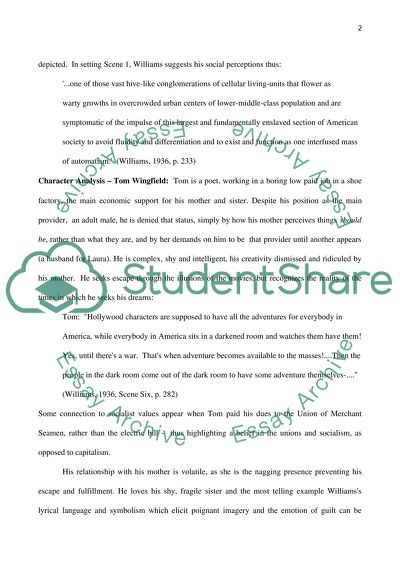Cite this document
(“The Glass Menagerie' by Tennessee Williams Essay”, n.d.)
Retrieved from https://studentshare.org/miscellaneous/1504654-the-glass-menagerie-by-tennessee-williams
Retrieved from https://studentshare.org/miscellaneous/1504654-the-glass-menagerie-by-tennessee-williams
(The Glass Menagerie' By Tennessee Williams Essay)
https://studentshare.org/miscellaneous/1504654-the-glass-menagerie-by-tennessee-williams.
https://studentshare.org/miscellaneous/1504654-the-glass-menagerie-by-tennessee-williams.
“The Glass Menagerie' By Tennessee Williams Essay”, n.d. https://studentshare.org/miscellaneous/1504654-the-glass-menagerie-by-tennessee-williams.


